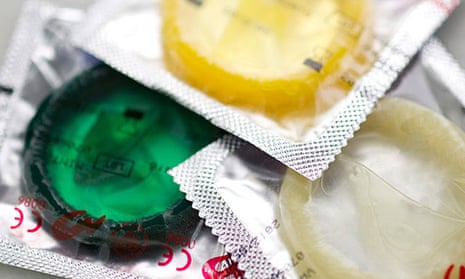From potatoes to deodorant, toilet paper and bottled beer, Cubans have come to accept chronic shortages as an inevitable part of life after more than half a century of communist rule.
Now a shrinking supply of condoms has upset residents of the Caribbean island nation and alarmed health officials who are worried by the possibility of an increase in sexually transmitted diseases and unwanted pregnancies.
Pharmacies in the central province of Villa Clara began running out of condoms in the middle of last month, according to Cuban bloggers reporting on the crisis, with shortages spreading to other towns and villages, and suburbs of the capital Havana in recent weeks.
One of the worst affected areas, the observers say, is the city of Santa Clara, which already has one of the highest rates of HIV infection on the island. They say that Cenesex, the state-run Cuban national centre for sex education, which is headed by President Raul Castro’s daughter, Mariela, has ordered the dwindling supplies to be allocated to areas of greatest need, including known carriers of HIV.
As a result, regular citizens visiting pharmacies in search of condoms are finding empty shelves, according to evidence collected by Havana blogger Polina Martínez Shvietsova, who conducted an ad-hoc survey.
She said called a number of pharmacy owners in several areas, who all told her: “We don’t have any, and we don’t know when we’ll get some.”
Other analysts warned of the health risk. “The people in the street, [those] making love in houses of rent, godforsaken corridors, in parks, these are sources of possible chains of infection,” said one anonymous man quoted by Cubanet, a Miami-based independent network of bloggers and dissidents.
So far there has been no official reaction from the Cuban government to the reports. One local official blamed problems with supplies from China in an interview with the Villa Clara newspaper Vanguardia this month but provided no answer about when the situation would ease.
But Juan Carlos Gonzalez, director of the state-run wholesaler Ensume, which is responsible for obtaining and supplying most of the nation’s government-subsidised condoms, told the newspaper there were more than a million condoms in the company’s warehouses and that the problem was the result of his workers being unable to meet demand.
He said Ensume had struggled to keep up with a ruling by the state’s regulatory medical agency Cecmed two years ago that the 2012 expiration date on millions of condoms imported from China was incorrect and that the packages had to be relabelled 2014.
Gonzalez said the workers could only repackage 1,440 strips of three condoms per day while the demand in Villa Clara province alone was 5,000 daily. Consequently, the price of a single condom has risen from just pennies to about $1.30, a day’s wages for a typical Cuban worker.
Until now, condom supplies have not been a problem in Cuba, which has always had an aggressive sexual health programme and has been praised by the World Health Organization as having one of the lowest rates of HIV/AIDS in the western hemisphere.
But the WHO did note in a 2005 report that HIV infections were rising because of an increase in prostitution and sex tourism on the island.
The condom shortage, meanwhile, has also affected those who use the prophylactics for non-sexual purposes. Anglers use them to give floats a glossy sheen attractive to fish, pigeon fanciers use their rubber rims to attach notes to birds’ legs and hard-up thrill-seekers fill them with cheap rum to smuggle into nightclubs.
“Police in central Havana are practically on a war footing taking care of the brawls produced within the huge crowds that aspire to buy the longed-for tuber,” wrote Cuban author Miriam Celaya in a tongue-in-cheek blog entry quoted by the Miami Herald.

Comments (…)
Sign in or create your Guardian account to join the discussion